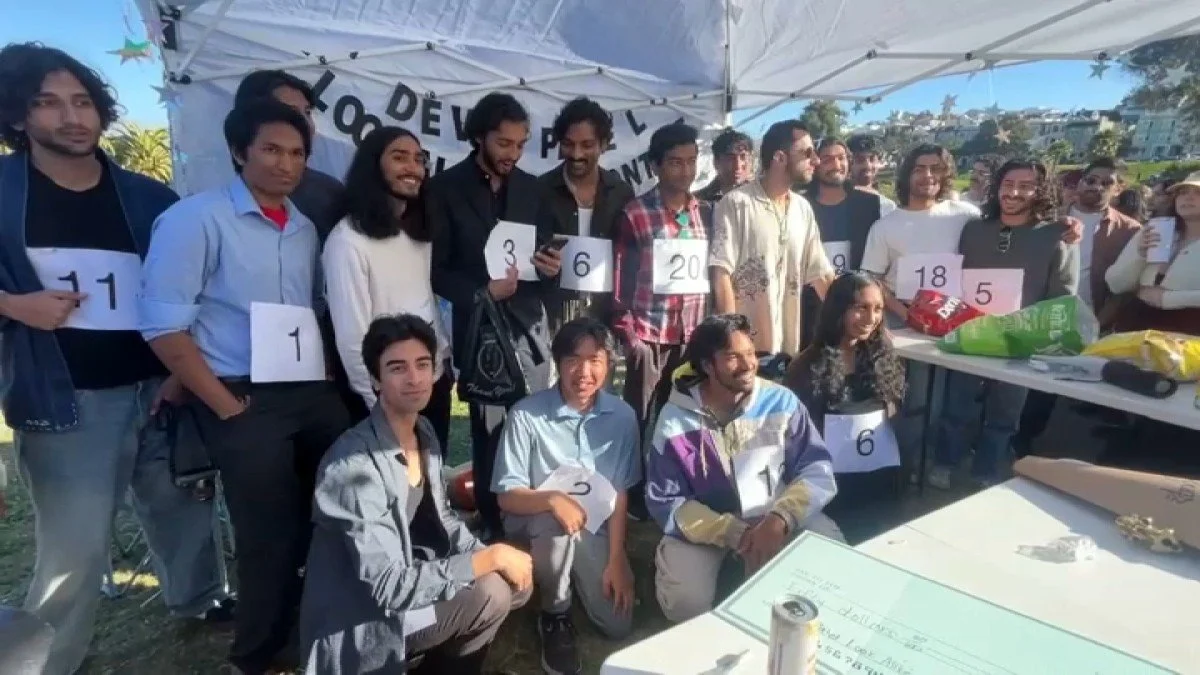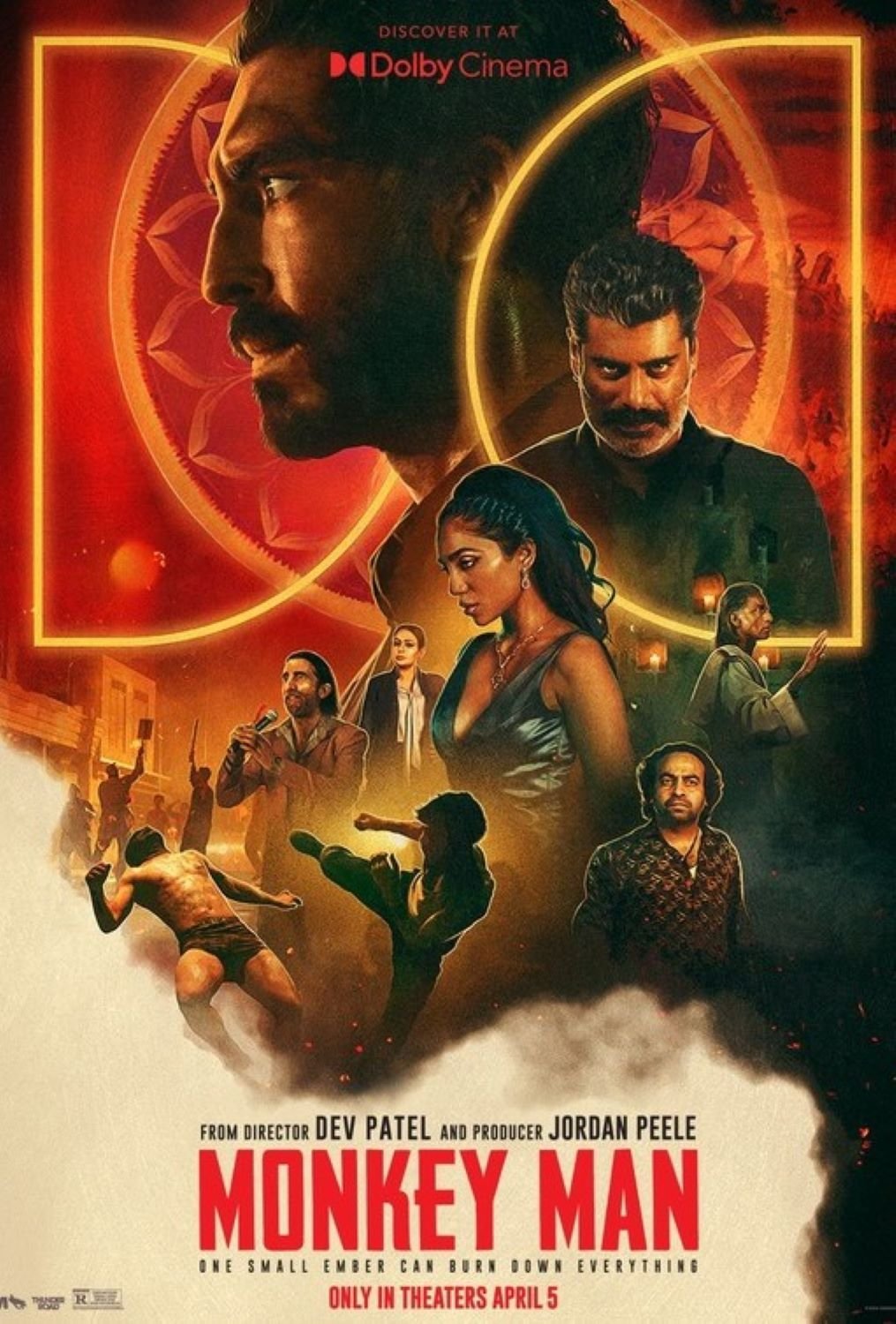Why Dev Patel Look-Alikes and Gen Z Relationships Are Breaking South Asian Stereotypes
Introduction:
What makes someone truly desirable? Last weekend, hundreds gathered in San Francisco to celebrate an unexpected heartthrob in Hollywood: Dev Patel. At the Dev Patel Look-Alike Contest in Dolores Park, scores of brown men, inspired by the British-Indian actor’s style and story, competed for the title of his closest doppelgänger. It was a joyous event, but it also shone a light on something deeper—the shifting perception of masculinity and attractiveness for South Asian men, who have long been overlooked as “sexy” by mainstream media.
As we recognize November as Men’s Mental Health Awareness Month, Dev Patel’s story offers an empowering counter-narrative to stereotypes about South Asian masculinity. Even Patel had to self-finance his recent film Monkey Man to step into an action role—a genre he would rarely be cast in due to his South Asian heritage. This contest celebrated not just a face, but a shift in how South Asian men, and the women who support them, are being redefined in a new era. And for Gen Z, that redefinition is shaking up the foundations of relationships and self-worth.
Dev Patel: Breaking the Mold of South Asian Masculinity
Dev Patel’s journey from “quirky underdog” to Hollywood heartthrob has been anything but conventional. After earning critical acclaim in Slumdog Millionaire, he went on to tackle roles that brought new shades of masculinity to the big screen. But Patel’s Hollywood trajectory still wasn’t smooth—he faced limited casting options, his heritage barring him from the “macho” roles he longed to take on.
Finally, Patel took matters into his own hands, writing, directing, and self-financing the action film Monkey Man. His reasoning? To create the kind of action hero that young South Asians, like himself, had never had a chance to see growing up. “I felt like a man possessed,” Patel told Vanity Fair, “I wanted to make a film for young Dev, the kid that grew up watching Bruce Lee films and yearned to exist in a certain film that I never had the opportunity to.” In doing so, Patel has become an emblem of change—a South Asian man celebrated for his good looks, talent, and, yes, his undeniable sex appeal.
Why Representation Matters for Men’s Mental Health
For South Asian men, mental health is often tied to issues of visibility and identity. The lack of representation of South Asian men as attractive or desirable in media has contributed to stereotypes that portray them as less assertive, less “masculine,” and even less worthy of admiration or desire. This can have real effects on mental health, where internalized stereotypes and self-doubt can arise from lack of positive representation.
Patel’s rise as a desirable leading man is a boost for men who have historically been excluded from such roles. Seeing a South Asian man celebrated in this way offers a new form of validation that reinforces self-worth and acceptance. By embracing his identity and pushing back against Hollywood norms, Patel exemplifies resilience—a quality vital for mental health, especially in cultures where vulnerability and self-expression are not often encouraged for men.
This is where events like the Dev Patel look-alike contest come in. They create space for South Asian men to celebrate themselves and to be celebrated by others, promoting a healthier image of masculinity that’s rooted in pride and self-respect. It’s no surprise that Patel’s journey, especially his resilience in Monkey Man, has become symbolic for so many young men.
Gen Z Relationships: A New Take on Partnership and Support
This year’s winner, 25-year-old Jaipreet Hundal from San Jose, was praised for his resemblance to Patel. But when fans asked him if he was single, Hundal had a heartwarming response. He pulled out a photo of his girlfriend, giving her a shoutout and crediting her unwavering support for helping him embrace his own Dev Patel look. “My girlfriend hypes me up all the time…she always says I look like Dev Patel or Ranveer Singh,” Hundal told the crowd. His public acknowledgment of her support hints at a new kind of relationship dynamic, one where partnership is about building each other up rather than maintaining outdated gender roles.
Gen Z couples are known for approaching relationships with a progressive mindset, valuing equality, emotional transparency, and mutual support. Where Millennials and previous generations may have seen relationships as more traditional or hierarchical, Gen Z’s approach emphasizes collaboration and empowerment. By celebrating his girlfriend’s role in his life, Hundal demonstrated what it means to have a partner who lifts you up—and it’s a refreshing take that South Asian culture, and the world, needs to see more of.
The Cultural Shift: Celebrating Masculinity and Mental Health Together
The San Francisco Dev Patel Look-Alike Contest may have started as a fun event, but it became a powerful statement on South Asian identity. Brown men who have historically been overlooked by Western standards of beauty found themselves celebrated for qualities that have too often been overlooked. Through this event, hundreds of South Asians gathered to appreciate their own beauty, masculinity, and cultural pride.
These small shifts, like Jaipreet Hundal’s shoutout to his girlfriend or Patel’s Monkey Man self-financing, contribute to a larger cultural movement. They challenge societal expectations and offer South Asian men—and their partners—a new framework for healthy masculinity. This celebration of strength and pride, grounded in support and vulnerability, is an evolution for both men’s mental health and relationships across the South Asian diaspora.
Conclusion: Join the Conversation
As November continues, we encourage you to consider how masculinity, mental health, and modern relationships intersect. Our upcoming virtual men’s panel will dive deeper into these themes, inviting perspectives on South Asian identity, vulnerability, and evolving gender roles. To all the Dev Patels, Jaipreet Hundals, and the partners who support them—this is your month. Let’s redefine masculinity, break old molds, and celebrate the new faces of South Asian strength, pride, and resilience.



